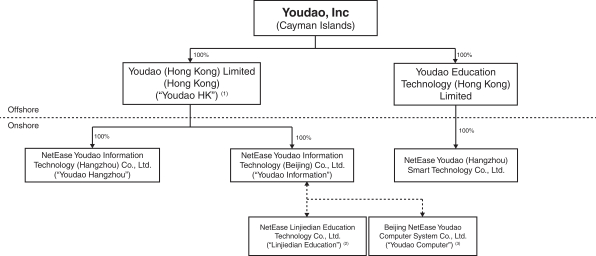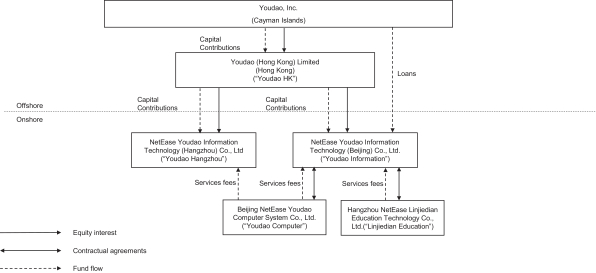We believe, to the best of our knowledge, our business operations do not violate any of the above PRC laws and regulations currently in force in all material aspects. We have been taking and will continue to take reasonable measures to comply with such laws, regulations, announcement, provisions and inspection requirements; however, as such laws, regulations, announcement and provisions are relatively new, it remains uncertain how these announcements and provisions will be implemented. We cannot assure you we can adapt our operations to it in a timely manner. Evolving interpretations of such laws, regulations, announcements and provisions or any future regulatory changes might impose additional restrictions on us generating and processing personal and behavioral data. We may be subject to additional regulations, laws and policies adopted by the PRC government to apply more stringent social and ethical standards in data privacy resulting from the increased global focus on this area. To the extent that we need to alter our business model or practices to adapt to these announcement and provisions and future regulations, laws and policies, we could incur additional expenses.
Any failure, or perceived failure, by us, or by our third-party partners, to maintain the security of our user data or to comply with applicable privacy, cybersecurity, data security and personal information protection laws, regulations, policies, contractual provisions, industry standards, and other requirements, may result in civil or regulatory liability, including governmental or data protection authority enforcement actions and investigations, fines, penalties, enforcement orders requiring us to cease operating in a certain way, litigation, or adverse publicity, and may require us to expend significant resources in responding to and defending allegations and claims. Moreover, claims or allegations that we have failed to adequately protect our users’ data, or otherwise violated applicable privacy, cybersecurity, data security and personal information protection laws, regulations, policies, contractual provisions, industry standards, or other requirements, may result in damage to our reputation and a loss of confidence in us by our users or our partners, potentially causing us to lose users, advertisers, content providers, other business partners and revenues, which could have a material adverse effect on our business, financial condition and results of operations.
We may face risks and uncertainties with respect to the licensing requirement for internet audio-visual programs.
According to relevant PRC laws and regulations, no entities or individuals may provide internet audio-visual program services, which includes making and editing of audio-visual programs concerning educational content and broadcasting such content to the general public online, without a License for Online Transmission of Audio-Visual Programs issued by the State Administration of Press, Publication, Radio, Film and Television, or the SAPPRFT (currently known as National Radio and Television Administration), or its local bureaus or completing the relevant registration procedures with SAPPRFT or its local bureaus. And only state-owned or state-controlled entities are eligible to apply for a License for Online Transmission of Audio-Visual Programs. See “Item 4. Information on the Company—4.B. Business Overview—Regulation—Regulation Related to Online Transmission of Audio-Visual Programs,” in our annual report on Form 20-F for the year ended December 31, 2021, which is incorporated by reference in this prospectus. However, there are still significant uncertainties relating to the interpretation and implementation of the Administrative Provisions on Internet Audio-Visual Program Service, or the Audio-Visual Program Provisions, in particular, the scope of “internet audio-visual programs.”
We, through the operation of the VIEs, offer live courses in live streaming format where the live audio/video data are transmitted through the platforms between the specific recipients instantly without any further redaction. In addition, we, through the operation of the VIEs, also offer video recordings of live streaming courses and certain other audio-video contents on our online platforms to our users. We believe the nature of the raw data the VIEs transmitted distinguishes us from general providers of internet audio-visual program services. However, we cannot assure you that the competent PRC government authorities will not ultimately take a view contrary to our opinion. Provisional Implementation of the Tentative Categories of Internet Audio-Visual Program Services promulgated by the SAPPRFT, or the Categories, describe “internet audio-visual program services” in a very broad, vague manner and are unclear as to whether the contents being offered or are available on our platforms fall into the definition of “internet audio-visual programs.” The PRC government may find that
30

